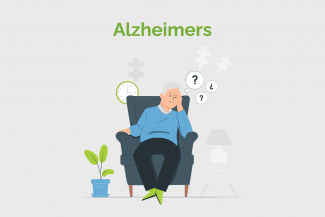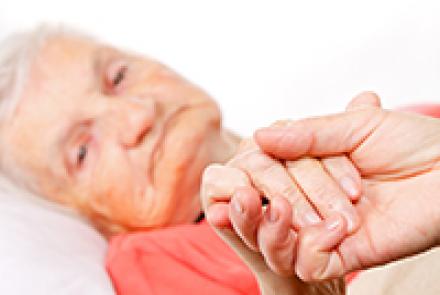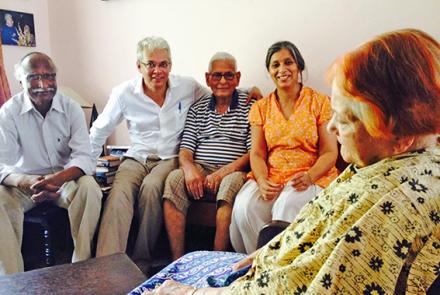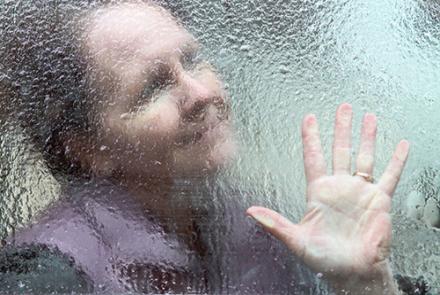Alzheimer's disease is a neurological disorder (disorder of the nervous system) in which the death of brain cells causes memory loss and cognitive decline.

What are the symptoms of Alzheimer’s disease?
The changes in behavior and understanding are different from those that normally happen as one ages. For instance, occasional lapses of memory occur in normal ageing, like sometimes forgetting where you left your things. It isn’t disabling. Whereas in Alzheimer’s, there is persistent disabling in intellectual abilities, like memory, language, judgment and abstract thinking.
The patient may show some of the following symptoms:
- Memory changes and forgetfulness, which is different from normal ageing.
- Worsened ability to take in and remember new information, for example:
- Repetitive questions or conversation
- Misplacing personal belongings
- Forgetting events or appointments
- Getting lost on a familiar route
- Impairments to reasoning, complex tasking, exercising judgment:
- Poor understanding of safety risks
- Inability to manage finances
- Poor decision-making ability
- Inability to plan complex or sequential activities
- Impaired visuo-spatial abilities (due to eye sight problems, when nerve cells in the vision area are affected):
- Inability to recognize faces or common objects or to find objects in direct view
- Inability to operate simple implements, or orient clothing to the body.
- Impaired speaking, reading and writing:
- Difficulty thinking of common words while speaking, hesitations
- Speech, spelling and writing errors
- Changes in personality and behavior:
- Out-of-character mood changes, including agitation, less interest, motivation or initiative, apathy, social withdrawal
- Loss of empathy
- Compulsive, obsessive or socially unacceptable behavior
Changed
29/Dec/2025
Community
Condition

















